Tuesday, August 31, 2010
Monday, August 30, 2010
The Most Influential Muslims in Science & Technology
This is a weekly post by Nidhal Guessoum (see his earlier posts here). Nidhal is an astrophysicist and Professor of Physics at American University of Sharjah
The Royal Islamic Strategic Studies Centre in Amman, Jordan, has issued its second annual list of the 500 most influential Muslims, which it lists and briefly describes in 15 categories:
1. Scholarly
2. Political
3. Administrative
4. Lineage
5. Preachers
6. Women’s Issues
7. Youth
8. Philanthropy
9. Development
10. Science, Technology, Medicine, Law
11. Arts and Culture (with a special subcategory for ‘Qur’an Reciters’)
12. Media
13. Radicals
14. International Islamic Networks
15. Issues of the Day
The list, and its sub-lists, is (are) highly interesting, surprising in many ways, and would elicit all kinds of comments from any reader/observer. I will focus on the “Science, Technology, Medicine, Law” category (why was ‘Law’ lumped into this group??), but before that I would like to make a few comments.
First, as I’ve just noted, the categories themselves are quite unusual. The authors of the list do offer a few lines of description for each category, for example that ‘Lineage’ refers to “individuals [who] exercise influence in the Muslim world and global society by virtue of their lineage. They are from some of the oldest existing dynasties and thriving scholarly traditions that link directly to the Prophet Muhammad.” Also, if you’re wondering who is supposed to be included in the ‘Issues of the Day’ category, the authors tell you that “Within the past year the world has witnessed natural disasters, international political developments, environmental crises, destructions and revolutions. These are the key figures that have been exceedingly influential on these issues.” Oh, why are ‘Qur’an Reciters’ listed in a special sub-category, you ask? Because, we are told, “The recitation of Qur’an is a special art that is valued by Muslim communities across the world.”
The document also gives us the Top 50 Muslim people of influence across all categories, plus 11 “runners up”. Here are the first 5:
1. King Abdullah bin Abdul Aziz Al Saud, King of Saudi Arabia
2. Recep Tayyip Erdogan, Prime Minister of the Republic of Turkey
3. Grand Ayatollah Ali Khamenei, Supreme Leader of the Islamic Republic of Iran
4. King Abdullah II bin Al Hussein, King of the Hashemite Kingdom of Jordan
5. King Mohammed VI, King of Morocco
and the next 5:
6. Sultan Qaboos bin Sa’id, Sultan of Oman
7. Professor Sheikh Ahmad Muhammad al-Tayeb, Grand Sheikh of the Al Azhar University, Grand Imam of the Al Azhar Mosque
8. Grand Ayatollah Sayyid Ali Hussein Sistani, Marja of the Hawza, Najaf, Iraq
9. President Susilo Bambang Yudhoyono, President of Indonesia
10. Sheikh Dr Ali Goma’a, Grand Mufti of The Arab Republic of Egypt
OK, so 7 political leaders and 3 religious figures make up the Top 10 most influential Muslims in the world today… I invite you to comment on this (and other aspects of the list) and to check out the rest of the Top 50 (spoiler: more of the same…).
Now, interestingly, among the “runners up” are a number of high-caliber and eminently respectable intellectuals (Tariq Ramadan, Ingrid Matteson, Timothy Winter, A. Q. Khan, Mohammad El-Baradei), but I doubt how much influence they can be said to have, especially when put right alongside leaders like Sheikh Muhammad bin Rashid Al-Maktoum, the ruler of Dubai, vice-president and prime minister of the UAE…
Let us look at the Science, Technology, Medicine, and Law category. First, here’s the full list; interestingly, these scholars are listed by “region” (‘Middle East and North Africa’, ‘Asia’, ‘North America’); no ranking is apparently implied:
1. El-Naggar, Zaghloul (Egyptian geologist and scholar who writes and speaks on science and the Qur’an)
2. Ansari, Anousheh (the first privately-funded woman, and the first Iranian, to explore space in 2006; businesswoman who co-sponsored the ‘Ansari X Prize’…)
3. Salehi, Ali Akbar (head of the Atomic Energy Organization in Iran since July 2009)
4. Abdul Kalam, A P J (engineer and former president of India)
5. Mumpuni, Tri (She and her husband have promoted a system that combines heat and power as a basis for more sustainable sources of electricity in rural Indonesia.)
6. Khan, Abdul Qadeer (the father of the ‘Islamic Bomb’ in Pakistan)
7. Rahman, Atta-ur (coordinator general of COMSTECH—the Standing Committee on Scientific and Technological Cooperation for the promotion and cooperation of science and technology activities among the member states of the Organization of the Islamic Conference)
8. Marsoof, Saleem (a judge of the Supreme Court of Sri Lanka, prolific author and proponent of legal reform)
9. Shukor, Muszaphar (orthopedic surgeon, first Malaysian astronaut)
10. Dahlan, Winai (director of the Halal Science Center in Thailand, has written more than 30 original research articles published internationally and locally, and produced more than 2000 scientific and nutritional articles; writing weekly in 3 magazines since 1989)
11. El-Fatatry, Mohamed (Finland-based Egyptian entrepreneur, chairman and CEO of Muxlim.com, the social networking website for Muslims)
12. Guiderdoni, Bruno Abd Al-Haqq (French astrophysicist, director of the Lyon Observatory)
13. Al-Hassani, Salim (former professor of Mechanical Engineering at the University of Manchester Institute of Science and Technology, and the celebrated author of 1001 Inventions: Muslim Heritage in Our World)
14. Khalid, Fazlun (founder and director of the Birmingham-based Islamic Foundation for Ecology and Environmental Sciences)
15. Qureshi, Khawar (one of the world’s leading experts on public international law, the youngest advocate ever to have appeared before the International Court of Justice in 1993 for Bosnia’s genocide case against Yugoslavia)
16. Kutty, Faisal (outspoken lawyer on issues of human rights, Islamic thought and anti-terror legislation)
17. Oz, Mehmet (cardiothoracic surgeon who was made famous by regularly appearing on Oprah’s show and now has his own TV show)
18. Qazi, Mahmood Ahmad (chemical engineer, entrepreneur, writer, and founder of Kazi publications)
19. Zewail, Ahmed (1999 Nobel Prize Winner in Chemistry)
First, I must confess that I had never heard of 9 of these 19 “most influential Muslims” in Science, Technology, Medicine, and Law. (How about you, Salman, and our dear readers; please tell us!) Secondly, I have added next to the names a very brief description of the person’s credentials, as given by the Center’s document.
The list is surprising? It was to me, but that may just reflect my personal lack of knowledge of Muslim achievers far and wide. And hey, at least this year they did not include Harun Yahya, who was on the list (of 14 names) last year – and is no doubt influential in some unwanted ways!
Are there any names that you would have included, and which of the listed ones would you take out if, let’s say, we wish to have no more than 20 names?
Sunday, August 29, 2010
Eugenie Scott: Getting Evolution Right - Tips for Writers
Here is an excellent talk by Eugenie Scott of the National Center for Science Education (NCSE). Some of the things in here are specific for the American context, but it still provides a nice overview of evolution. Perhaps, most importantly, it highlights the way debates within the scientific community often get misrepresented in the media. Check it out - it is about an hour long.
Want more? Well you can check out Eugenie Scott's lecture as part of our Hampshire College Lecture Series on Science & Religion: Evolution and Creationism
Want more? Well you can check out Eugenie Scott's lecture as part of our Hampshire College Lecture Series on Science & Religion: Evolution and Creationism
Saturday, August 28, 2010
Off-topic: Check out "Scott Pilgrim vs. the World"
If you are looking for a fun, creative, and a very smartly written film, then check out Scott Pilgrim vs the World. And it is very funny! I was hesitant to go see it because the previews made it look like a teen comic-book movie (yes, it is based on a series of graphic-novels). However, it is much more interesting than that. It is directed by the Edgar Wright, who also did the fantastic Shaun of the Dead and Hot Fuzz - and it has the same humor full of pop-culture references. The movie has not done well - and it may be because of the advertising campaign. Instead of a teen movie, this is closer in spirit to Quentin Tarantino - especially Kill Bill Vol. 2 - with its nod to popular culture, other films, as well as Japanese comics. If you can find it in a theater near you, give it a shot. (Also, listen to this Fresh Air interview with Edgar Wright)
Here is a trailer for the film (but remember, it is much more than this):
Here is a trailer for the film (but remember, it is much more than this):
Thursday, August 26, 2010
The Clash of Uncivilizations
 Religions can do good and religions can do bad. Here is a Fresh Air interview with Eliza Griswold (about 20 minutes long), the author of The Tenth Parallel: Dispatches from the fault-line between Christianity and Islam. This looks like a fascinating book about hot places where Islam and Christianity meet and compete with each other. Often times the outcome is not very pretty (listen to the bit about Nigeria). She looks at places like Sudan, Nigeria, Indonesia, Malaysia, the Philippines, etc. In the interview she makes an interesting comment about evangelicals and how they may be defining the way the world looks at religion in US:
Religions can do good and religions can do bad. Here is a Fresh Air interview with Eliza Griswold (about 20 minutes long), the author of The Tenth Parallel: Dispatches from the fault-line between Christianity and Islam. This looks like a fascinating book about hot places where Islam and Christianity meet and compete with each other. Often times the outcome is not very pretty (listen to the bit about Nigeria). She looks at places like Sudan, Nigeria, Indonesia, Malaysia, the Philippines, etc. In the interview she makes an interesting comment about evangelicals and how they may be defining the way the world looks at religion in US:In the winter of 2003, writer Eliza Griswold traveled to the northern capital of Sudan with Franklin Graham, the evangelical leader and son of Billy Graham, to meet with Omar al-Bashir, the president of Sudan.
There were several reasons for making the trip. Graham wanted to ask Bashir for the right to preach to Muslims in Khartoum and in northern Sudan. (Bashir denied his request.) Griswold, meanwhile, wanted to see how Christian evangelicals had come to play such a large role in U.S. foreign policy, a topic she was researching for her book The Tenth Parallel, about the collisions between Islam and Christianity in certain parts of the world.
She says that when someone like Graham travels to Sudan to meet with an official, he is seen as representative of what all Americans believe.
"That is one of the more dangerous realities of how conservative evangelicals abroad can shape the perception of the West," she says. "This is especially sensitive in the Muslim world. ... [And then we see] this kind of defensive posturing of Islam — that Islam is under threat by the West. Unfortunately, a handful of evangelicals can misrepresent what the West is about and make Muslims feel very much under threat."
Ideological conflicts like these are not limited to Sudan, but many of them take place along the 10th parallel, the line of latitude 700 miles north of the equator. More than 60 percent of the world's 2 billion Christians live along the 10th parallel — along with half the world's 1.3 billion Muslim population. Griswold spent the past seven years traveling along the latitude line and researching the places — like Sudan, Nigeria, Indonesia, Malaysia, and the Philippines — where Christianity and Islam collide.
Also, read the New York Times review of The Tenth Parallel here. Here is a bit about Indonesia and Malaysia:
In Indonesia, home to the world’s largest Muslim population, the religious ferment mostly occurs between conservative and moderate Islam. Bouts of violence shocked the quiescent majority into defending a traditionally tranquil version of its faith and, happily, the moderates may now have the upper hand. Griswold trekked from Jakarta to the province of Aceh, meeting all sorts of Indonesians, from a terrorist leader to a bride-to-be worried she would be found not to be a virgin. Those unfamiliar with Asia may be surprised to learn that a much more draconian legal system defends and promotes Islam in tiny, prosperous Malaysia, whose oil wealth and skyscrapers coexist with measures that ban usury and ensure compliance with Shariah or Islamic law; make it illegal for a Muslim to leave the faith and forbid proselytizing by other religions — all to preserve the Malay culture and Muslim religion in this melting pot of Hindus, Buddhists, Christians and aboriginal tribes like the Orang Asli, who practice animism.
But then it seems that these fights over religion and the urge to proselytize may not be that easy to explain:
The same might be said of the itinerant and intrepid author, who candidly admits that she has discovered no neat theory to explain why people fight over religion or why someone like the self-proclaimed Reverend Abdu, a former Muslim Fulani nomad, lives his life as an unpaid proselytizer or why a missionary couple in the Sudan persist although they have not converted a single soul. Sitting in Abdu’s sweltering hut one day Griswold experienced the paradoxically cooling effect of the hot tea he serves her and realizes that some mysteries cannot be solved.
Wednesday, August 25, 2010
Getting closer to detecting earth-size exoplanets
There is no reason to think why there won't be any earth-sized planets orbiting other stars. The detection techniques so far have been sensitive to the detection of large planets usually orbiting close to the parent star. We now have the detection of a solar system containing at least 5 Neptune-size planets - and may be two more planets, with at least one comparable to the size of the Earth (about 1.4 times the mass of the Earth). This system is located about 127 light years away and the host star is similar to the Sun. If you want to impress your friends, the name of the host star is HD 10180 (you can find details of the star and the planets if you click on the link to the name of the star).
Yes, this is very cool - especially if the detection of the smaller planet(s) is confirmed. However, couple of cautionary notes: This planetary system, despite all the planets, is quite different than our own solar system. The five Neptune-sized planets are all located within the distance of the orbit of Mars - and that makes it quite a bit crowded than the place we live in. Second, presence of the smaller planet(s) has not been confirmed yet (the detection technique does not involve images - rather, the presence of the planets is inferred from the slight wobble of the parent star - and model-fits to this wobble pattern. This is a very successful method of detecting planets, but as you can imagine, it also gets hard to infer the presence of small planets in a multi-planet system). And even if the detection of earth-size is confirmed, the planet may not be much like our own Earth as it is expected to be orbiting really really close to its sun - with a period of only 1.2 Earth-days! (For comparison, Mercury takes 88 days to around the Sun).
Nevertheless, we are getting closer to detecting earth-like planets. If you want to keep track of the number of extrasolar planets, you should check out The Extrasolar Planets Encyclopedia (488 planets from their count) and Planet Quest (473 planets around 402 stars from their count). In fact, download this cool widget that will let you keep track of the count just like your computer clock and weather.
It is only a matter of time before we start detecting earth-like planets...
Read the full story here.
Tuesday, August 24, 2010
Malaysia: More on ethnicity, religion, and politics
It is no surprise that factors such as religion, ethnicity, and politics all play a role in shaping the interaction of a society with science. I was in Malaysia to conduct interview-surveys about the acceptance of evolutionary biology and to see how Muslim Malaysians view modern science and its relation to their interpretation of Islam. It has been absolutely fascinating to learn about the complex ethnic and religious interactions there. Earlier this year, I had also read about the controversy regarding the use of the word "Allah" by non-Muslims in Malaysia. But until I went to Malaysia, I did not truly appreciate the complex history and the political motivations behind it. Now, Kevin in a comment on another post has pointed to this fascinating report by Al-Jazeera on this controversy:
Couple of things to note here:
The political motivations are quite obvious and it is almost funny to watch it alongside the Islamic Center controversy in NYC (and no, you still cannot defend the idiotic political opposition to the Islamic Center). While the first part of the video is good in highlighting this particular controversy, I think the interviews in the second part are more instructive in showing the struggle taking place within Islam in Malaysia (and similar debates elsewhere). One of the key points raised by the host (who did a nice job in keeping the discussion on track) is the notion of private versus state-enforced religion. This issue is not limited to Malaysia - but it takes a particular political turn there because of the presence of sizable non-Muslim minorities.
Not surprising at all, but another thing to note is the significantly different interpretations of Islam by the three guests - all the way from a fatwa-driven society to the notion of religion as a private matter. Similarly, it was interesting to note the mention of the differences of interpretation of Islam in Malaysia versus in places like Saudi Arabia or the rest of the Middle East. And I also loved the fact that one of the guests, Yusri Mohamad, expressing displeasure over mixing religion and politics - despite of him doing just that in the whole interview.
In many ways, Malaysia has done quite well in the last few decades. It is possible that the challenges it is facing these days are the result of these changes - perhaps the last hurrah of those against modernization and religious pluralism. But how it deals with its religious and ethnic minorities now may shape the direction of its future.
Check out the above segment from Al-Jazeera. And here is a bit from a BBC article about the recent controversy from earlier this year:
Couple of things to note here:
The political motivations are quite obvious and it is almost funny to watch it alongside the Islamic Center controversy in NYC (and no, you still cannot defend the idiotic political opposition to the Islamic Center). While the first part of the video is good in highlighting this particular controversy, I think the interviews in the second part are more instructive in showing the struggle taking place within Islam in Malaysia (and similar debates elsewhere). One of the key points raised by the host (who did a nice job in keeping the discussion on track) is the notion of private versus state-enforced religion. This issue is not limited to Malaysia - but it takes a particular political turn there because of the presence of sizable non-Muslim minorities.
Not surprising at all, but another thing to note is the significantly different interpretations of Islam by the three guests - all the way from a fatwa-driven society to the notion of religion as a private matter. Similarly, it was interesting to note the mention of the differences of interpretation of Islam in Malaysia versus in places like Saudi Arabia or the rest of the Middle East. And I also loved the fact that one of the guests, Yusri Mohamad, expressing displeasure over mixing religion and politics - despite of him doing just that in the whole interview.
In many ways, Malaysia has done quite well in the last few decades. It is possible that the challenges it is facing these days are the result of these changes - perhaps the last hurrah of those against modernization and religious pluralism. But how it deals with its religious and ethnic minorities now may shape the direction of its future.
Check out the above segment from Al-Jazeera. And here is a bit from a BBC article about the recent controversy from earlier this year:
The results of the 2008 elections ramped up the tension.
The ruling coalition still won, but with a much reduced majority in the worst result in 50 years.
Norani Othman, a professor at the Institute of Malaysian and International Studies (IKMAS) at Universiti Kebangsaan Malaysia, says that after independence, there was a national emphasis on consensus-building and equality.
That was adapted, after race riots in 1969, to more overtly pro-Malay policies.
As Muslim nations around the world struggled to modernise, yet not lose touch with their traditional roots, the influence of Islamist parties expanded.
In Malaysia, that pitted the ruling United National Malays Organisation (Umno) against the Islamic Party of Malaysia (PAS) with the result that the 1980s saw a deliberate process of Islamisation.
What were once affirmative action policies geared to help Malays "catch up" with other Malaysians became policies enshrining Malay primacy or ascendancy, and being Malay meant being Muslim.
Institutions deemed to conform with Islamic principles and values were created - Islamic banks, Islamic insurance, Islamic university - there was even talk of "Islamising knowledge".
The list of matters judged to be under the jurisdiction of Islamic laws has expanded over the decades.
Just as the so-called race riots of 1969 were in fact a sign of systemic breakdown, as Australian academic Clive Kessler argues, so do the current tensions pose a direct challenge to Malaysia's founding aspirations of a diverse and democratic nation, argues Prof Othman.
Read the full article here.
Monday, August 23, 2010
Ramadan, Meat, Vegetarianism, and Islam
This is a weekly post by Nidhal Guessoum (see his earlier posts here). Nidhal is an astrophysicist and Professor of Physics at American University of Sharjah
Let’s continue a bit with themes related to Ramadan (at least partially). The month is almost half over, and we are now well settled into a different lifestyle, especially with regard to eating habits. Our intakes (types and rhythms) have changed; our metabolisms have changed. In particular, consumption of meats and sweets has increased, at least in the places I am familiar with.
I don’t have any statistics on the consumption of meat in the Arab-Muslim world, and I am sure it varies between very low levels in famine-stricken and poor lands like Somalia, Niger, and Bangladesh, and extremely high levels in opulent and traditionally carnivorous places like the Arab Gulf. But I can offer two personal observations: first, the general populations of the Arab-Muslim world have largely increased their consumption of meat (this is due to the rise in standards of living and the greater and cheaper availability of meats), and secondly that some segments of the population, the more highly educated and perhaps western influenced groups, have lately started to shun meat or at least reduce their consumption of it; now vegetarianism has started to be discussed and even advocated. (According to Wikipedia, in January 1996 the International Vegetarian Union announced the formation of the Muslim Vegetarian/Vegan Society.)
Recently, in Jordan and in Egypt, advocates of vegetarianism participated in consciousness-raising events organized by the global animal rights group People for the Ethical Treatment of Animals (PETA). In the Amman, Jordan event, one lady covered herself with lettuce leafs and marched with others (see the accompanying picture, where the sign reads “'Let vegetarianism grow on you” – literally). Most interestingly to me is the fact that the lettuce-clad lady wears the hijab (the Islamic hair-covering dressing style). Although the activists tried to emphasize environmental and economic concerns and animal treatment issues, not to mention the presumably healthier aspects of vegetarianism, the general reactions to the PETA events were quite negative in both Amman and Cairo. The Arab world, it seems, is not quite mentally ready to embrace vegetarianism, and again we find religion to some extent related to this.
So, what about the religious perspective? Going vegan or vegetarian (the difference is not important here) is obviously a personal issue, one which each one of us should decide on one’s own, but as always in the Muslim culture, the “position of Islam” is often asked. And indeed, one finds in the “Ask the Scholar” section of IslamOnline, a Q & A on this topic in which one reads:
First of all, it should be clear that one should not think that it is better to abstain from eating meat, that doing so will be rewarded, or that being a vegetarian is closer to Allah than not, and so on. It is not permitted to draw closer to Allah in this way.
…
Dr. Muzammil H. Siddiqi, former President of the Islamic Society of North America, states:
“Allah has created some animals for our food as Allah says in the Qur'an in surat an-Nahl, 'And cattle He has created for you. From them you drive wont and numerous benefits and of their meat, you eat.' (An-Nahl: 5-8)
Muslims do recognize animal rights. Animal rights means that we should not abuse them, torture them and when we have to use them for meat, we should slaughter them with a sharp knife, mentioning the name of Allah. […]
So, Muslims are not vegetarians. However, if someone prefers to eat vegetables, then he is allowed to do so. Allah has given us permission to eat meat of slaughtered animals, but He has not made it obligatory upon us.”
Muslim advocates of a more vegetarian lifestyle insist that the issue is not a religious one and that it is a serious mistake to discuss it in terms of halal (permissible) and haram (prohibited). They further claim that Prophet Muhammad himself preferred vegetables and only rarely ate meat and that some of the great figures of Islamic history, particularly Sufis/mystics like Rabi`ah al-`Adawiyyah, were vegetarians.
Perhaps a compromise of moderation could satisfy everyone, or at least most people, from all perspectives: health, economics, environment, animal treatment, etc. And in the Ramadan spirit of remembering the poor and feeling their hunger and their needs, perhaps some of us should make a conscious effort to reduce our daily consumption of meat to a minimum and donate the difference.
See earlier posts:
Sunday, August 22, 2010
Malaysia: Motorcycle helmets, modernity, and contradictions
Couple of more thoughts on my recent trip to Malaysia (I still to post some pictures of a fantastic aquarium in Kuala Lumpur). I was struck by the fact that I did not see anyone without a helmet on a motorcycle in Kuala Lumpur. Here is a picture at a random traffic light. I tried hard to find counter-evidence - but did not find one, either on the highway or on the bust streets of downtown Kuala Lumpur.
Is this a sign of modernization? An increased value of individual human life and/or a link with a higher level of education than many in the developing world. Yes, I know that helmets are required by law in Malaysia - but then, somebody is enforcing that law quite effectively. As a contrast, here is a picture from Pakistan - where we find many many ordinary daredevils on the street every day:
Read the full article here.
Is this a sign of modernization? An increased value of individual human life and/or a link with a higher level of education than many in the developing world. Yes, I know that helmets are required by law in Malaysia - but then, somebody is enforcing that law quite effectively. As a contrast, here is a picture from Pakistan - where we find many many ordinary daredevils on the street every day:
or some selective use of helmets - again in Pakistan:
I don't know. It is quite possible that helmets do not symbolize anything. But it appears that Malaysia is at an interesting transitionary point. It is certainly more developed than much of the developing world - and, at least Kuala Lumpur, is modern and pluralistic. Yes, there are more conservative, rural areas as well - but my views are based only on comparing urban centers. At the same time, there definitely appear to be tensions between the three dominant ethnic groups - the Malays (also all Muslims), the Chinese and the Indians. While I was there, everyday the newspaper headlines dealt with some aspect of this ethnic-identity debate. The future of Malaysia is definitely tied to how this multiethnic identity is resolved.
Interestingly, just this past week, Washington Post had an article on Malaysia that talked a bit about this issue:
Malaysia is justly proud of its record in managing what at one time threatened to be a conflict-ridden transition. It also takes pride in its distinctive Muslim culture and in the way its religious and ethnic diversity works in a fast-changing society. But behind Malaysia's new prosperity, seen in glittering skyscrapers and tangles of freeways, there are lively debates about what lies ahead.
Malaysia's challenges involve above all its diverse ethnic, religious and economic identities, and today's debates turn on how the three are intertwined. By constitution, Malaysia is a Muslim nation and its population is majority Muslim. Malays and Islam are tightly linked. That translates, among other things, into legal tussles over whether one can renounce being a Muslim. Malaysians are trying to identify how the country's Islamic identity is distinct and how much latitude there is for different strands of Islamic thinking; how much can Malaysian Islam change as the country modernizes? The country's minorities are largely Chinese and Indian, and they are mostly Buddhists and Christians. How do their rights balance with those of the Malay and Muslim majority, in law and in the society?The article takes an optimistic approach regarding these debates and I hope this turns out to be the case:
Thoughtful Malaysians worry that Malaysia's successful diversity is being challenged by an increasing de facto segregation in schools and neighborhoods. If the foundation of national identity is indeed that people of different races and religions will live and work together, they need at the very least to know one another. More integrated schools and curricula that highlight Malaysia's multiethnic and multireligious heritage and character are seen as the keys.
Malaysia's lively debates about cool imams, how to curb child marriage, and what should be taught in schools are healthy symptoms of a complex society confronting the complicated realities of racial and religious identities in modern times. South Africa found much to learn from Malaysia when it looked east two decades ago. The lessons continue to this day.
Read the full article here.
Friday, August 20, 2010
A biker pilgrimage with AC/DC
Step aside Lourdes. Here comes the festival of the Madonna of the Bikers.
I find fascinating the diverse ways in which religions are interacting with the modern world. I definitely have a soft-corner for UFO-based religions. But then this festival of the Madonna of the Bikers in France (France??) also made me smile. The picture above is an interesting/amusing example of a modern adaptation of an established religion. From On Motorcycle, European Pilgrims Race Toward God:
I find fascinating the diverse ways in which religions are interacting with the modern world. I definitely have a soft-corner for UFO-based religions. But then this festival of the Madonna of the Bikers in France (France??) also made me smile. The picture above is an interesting/amusing example of a modern adaptation of an established religion. From On Motorcycle, European Pilgrims Race Toward God:
The festival of the Madonna of the Bikers, which organizers promote as the largest motorcycle “pilgrimage” in France — there are few aspirants to the title — attracted nearly 10,000 motorcyclists from across Europe last weekend to the soggy wheat fields of Porcaro, population 650. It was an unlikely mix of what Roman Catholic Bretons call the “sacred and profane”; many came to pray, many to carouse, a surprising number to do both.
There were priests and incense and holy water and much solemnity and prayer, but also AC/DC and studded leather, body piercings and tattoos and, beginning well before noon and lasting well into the night, the consumption of prodigious quantities of alcohol.Somehow, the AC/DC reference is just too perfect here (yes, I'm going to resist here putting any reference to Highway to Hell). And of course, we also have a biker priest:
Despite all the imbibing, the gathering in Porcaro began as and remains a religious event, with the backing of the Catholic Church.
“The essential thing for me, as a priest — as a biker-priest — is to show this community that God is close to them,” said Father Audrain, who rides a BMW F 800 ST and has helped coordinate the Madonna of the Bikers since 2007. “My work, in the first place, is about making God seem all right, and making the church seem all right.”Read the full article here.
Thursday, August 19, 2010
Flood in pictures
If you are looking for ways to help Pakistan flood victims, please visit this post.
About 7 or 8 years ago, Science had published an article that talked about the coming water crisis in South Asia and its potential consequences for Pakistan-India relations. Its prediction (and it was dire) was that first there will be floods due to melting glaciers and other climactic factors, and then there will be a prolong drought. The water crisis, of course, may put the two rival countries at the brink of war. Here is a recent oped that talks about this flood & drought situation in South Asia and what can we expect in the near future. With changing climate, unfortunately, we are going to see more and more calamities affecting large and small populations across the globe.
As for the current flood in Pakistan, read this excellent article by writer Daniyal Mueenuddin: A Lifetime, Washed Away (I will also have an excerpt from it below a photograph).
Here is a map of the devastation in the path of the mighty river Indus:
And here are some pictures:
This gives us an idea of the floods. This is in Muzaffargarh district in Punjab province. Notice that the residents from one side probably will be trying to cross to the other side. (Image from Reuters)
A town in the northwestern region of Pakistan.
This is in the Nowshera district in the Northwestern Pakistan
No - this is not a stunt. This truck, with all these people, is really trying to cross these waters.
Another picture from the Nowshera district. Notice the waist-deep water where everyone is standing. I have no idea, how that truck in the background is going to make even a mile.
This is an effective rescue by a sister of her younger brother near Sukkur, in the southern province of Sindh.
This is near Taunsa barrage in Punjab province.
Here villagers are wading through floodwaters with their livestock. For many, this is the only thing they are left with. This picture is from the Sukkur district in Sindh province.
This last picture provides me with an opportunity to post an excerpt from Daniyal Mueenuddin's article.
A few days ago, I stood atop a 30-foot-high levee in Pakistan’s south Punjab, looking out as the waters from the greatest Indus River flood in memory flowed past, through orchards, swirling around a village on higher ground half a mile out. Twenty miles wide, the flood was almost dreamlike, the speeding water, as it streamed through the upper branches of trees, carrying along bits of brightly colored plastic and clumps of grass.
Many of the displaced people had left the area in the past few days, driving whatever was left of their herds, carrying whatever they were able to rescue.
...
I found most pitiful a family gathered around a prostrate brown-and-white brindled cow. The father told me that the cow had been lost in the water for four days, and the previous night it had clambered up on another section of the levee, a mile away. The people of this area recognize their cattle as easily as you or I recognize a cousin or neighbor — they sleep with their animals around them at night, and graze them all day; their animals are born and die near them. Someone passing by told the family that their cow had been found, and the father went and got it and led it to their little encampment.
In the early morning the cow had collapsed, and I could see it would soon be dead. Its eyes were beginning to dull, as the owner squatted next to it, sprinkling water into its mouth, as if it were possible to revive it. Its legs were swollen from standing in water, and its chest and torso were covered with deep cuts and scrapes, sheets of raw flesh where branches rushing past must have hit it.
The rest of the family sat nearby on a string bed, resigned, waiting for the end. This was their wealth, but when it died they would tip it into the water and let it float away to the south. Through the past few days they had seen it all, houses collapsed, trees uprooted, grain spoiled, and this was just one more blow.
Read the full article here. If you are looking for ways to help flood victims, you can find a list of organizations here.
How to help Pakistan flood victims
Excellent blog, All Things Pakistan, has compiled a list of agencies that are helping flood victims in Pakistan. I have reproduced that list below. It is still hard to imagine the fact that 20% of Pakistan - about the size of all of England - is under water, and that 20 million people, out of a population of 170 million, have been affected.
Please pick whichever organization you like and help whatever you can. Thanks!
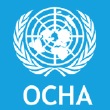

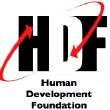


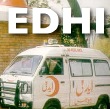
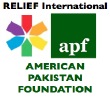
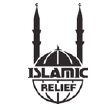
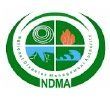
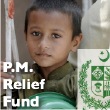

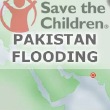
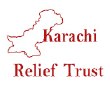
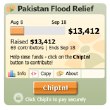

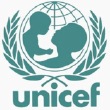



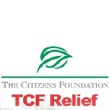

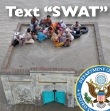

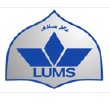
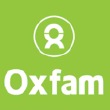
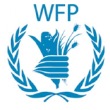
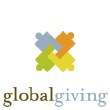

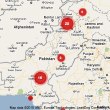
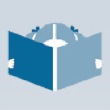


Please pick whichever organization you like and help whatever you can. Thanks!
































Wednesday, August 18, 2010
Capuchins and the sense of fairness
 NPR is running an excellent series, How Evolution Gave Us the Human Edge (yay - we are #1!!). Its latest installment was on the sense of fairness in humans - and what capuchin monkeys can tell us about the origin of this trait in humans. Listen to the episode here (it is about 6 minutes long). This also provides me with an opportunity to announce our next Science & Religion lecture at Hampshire College on Wednesday, September 22nd at 5:30pm. Our speaker is anthropologist Barbara J King (see her blog here). The title of her talk is Gorillas and God: Evolutionary Roots of Religion. I will have another announcement as time gets closer, but if you are in the area and are interested in the lecture, please save the date.
NPR is running an excellent series, How Evolution Gave Us the Human Edge (yay - we are #1!!). Its latest installment was on the sense of fairness in humans - and what capuchin monkeys can tell us about the origin of this trait in humans. Listen to the episode here (it is about 6 minutes long). This also provides me with an opportunity to announce our next Science & Religion lecture at Hampshire College on Wednesday, September 22nd at 5:30pm. Our speaker is anthropologist Barbara J King (see her blog here). The title of her talk is Gorillas and God: Evolutionary Roots of Religion. I will have another announcement as time gets closer, but if you are in the area and are interested in the lecture, please save the date.Mosque hysteria is shameful (and strategically idiotic)
Tolerance and cultural & religious pluralism usually goes hand in hand with great scientific cultures. I still haven't seen the recent film Agora (c'mon Amherst Cinema - get it here), about the destruction of the ancient Library of Alexandria, but the central message is on tolerance. Since this blog focuses on science in the Muslim world, the issue of intolerance in Pakistan (against different religious minorities, but its treatment of Ahmadiyya sect is particularly shameful), Saudi Arabia, Iran, etc. comes up.
So it is shameful to see the mosque hysteria in the US. Yes, it has become an emotionally charged issue and not everyone who opposes the Islamic center two blocks from Ground Zero is a bigot. But bigots do also exist everywhere - and one hopes that the narrative of the bigots does not become mainstream. Enter the Republican Party and the mid-term elections. They have clearly decided to make this a political issue and have blurred the distinction between Muslims in general (about 1.4 billion worldwide) and Al-Qaeeda (estimated to be a few thousand). Thus, people like Newt Gingrich are successfully creating the narrative promoted by Al-Qaeeda itself (check out this article: Sheikh your Newtie - The Gingrich-Bin Laden Alliance).
Yes, much of this is tied to domestic US politics. But it is foolish to think that this is how the rest of the world (especially the Muslim world) will see it. Not only is this an assault on idea of religious freedom in the US, but this will have consequences for US foreign policy as well. However, there are also a number of people and publications, that are standing up to this shameful opposition and they need to acknowledged as well - and it is great that there is some high profile support (Harry Reid, of course, excluded) for the right to build the Islamic Center near Ground Zero.
First check out this rant by Keith Olberman on yesterday's Countdown:
Plus, today's NYT came out with a strong editorial today: The Constitution and the Mosque
Rest of Dalrymple's article deals with sufism and the recent attacks on sufi shrines in Pakistan. Check out his full article here.
But then of course, the best commentary on the issue is provided by Jon Stewart (sorry for those who can't watch it). Here is an excellent piece from yesterday's Daily Show:
Let's hope that sense (and the sensible side) prevails on this issue. There was a time when Japanese-Americans were placed in internment camps in the US. Or a time of racial segregation, before the Civil Rights Movement . Or McCarthyism. The bad thing is that these things have happened in the past - and at the time many people were convinced that this was a good idea. The good thing is that many Americans also stood up against these steps and ultimately changed the tide. I'm pretty sure, the mosque and other anti-Muslim hysteria being drummed up by the Republican party will also die out and many years now we will look at this episode in an embarrassing light. Constitutionally and domestically, the US will get back on track. But what about the damage to the US reputation of freedom-of-religion - especially in the Muslim world? That may turn out to be a more permanent mark.
--------------
Bonus: A Salon piece dissecting an interview by a CNN anchor on the mosque issue.
So it is shameful to see the mosque hysteria in the US. Yes, it has become an emotionally charged issue and not everyone who opposes the Islamic center two blocks from Ground Zero is a bigot. But bigots do also exist everywhere - and one hopes that the narrative of the bigots does not become mainstream. Enter the Republican Party and the mid-term elections. They have clearly decided to make this a political issue and have blurred the distinction between Muslims in general (about 1.4 billion worldwide) and Al-Qaeeda (estimated to be a few thousand). Thus, people like Newt Gingrich are successfully creating the narrative promoted by Al-Qaeeda itself (check out this article: Sheikh your Newtie - The Gingrich-Bin Laden Alliance).
Yes, much of this is tied to domestic US politics. But it is foolish to think that this is how the rest of the world (especially the Muslim world) will see it. Not only is this an assault on idea of religious freedom in the US, but this will have consequences for US foreign policy as well. However, there are also a number of people and publications, that are standing up to this shameful opposition and they need to acknowledged as well - and it is great that there is some high profile support (Harry Reid, of course, excluded) for the right to build the Islamic Center near Ground Zero.
First check out this rant by Keith Olberman on yesterday's Countdown:
Like President George W. Bush before him, President Obama warned against linking all followers of Islam to terrorists. “Al Qaeda’s cause is not Islam — it is a gross distortion of Islam,” he rightly said. It is our tolerance of others, he said, “that quintessentially American creed,” that stands in contrast to the nihilism of those who attacked us on Sept. 11, 2001.
We wish he hadn’t diluted the message the next day, telling reporters that he wasn’t commenting on “the wisdom of making the decision to put a mosque there. I was commenting very specifically on the right people have that dates back to our founding.”
He would have done better if he had explained the wisdom of going ahead with the project, which developers said is intended to bring Muslims and non-Muslims together. In addition to a place of worship, it would have a pool and performing arts center. They also have said they want the board to include members from other faiths — a promise they should take care to keep.
...
Mr. Obama and all people of conscience need to push back hard. Defending all Americans’ right to worship — and their right to build places to worship — is fundamental to who we are.Similarly, William Dalrymple - also in NYT - brings up an interesting point regarding the mosque opposition:
The problem with such claims goes far beyond the fate of a mosque in downtown Manhattan. They show a dangerously inadequate understanding of the many divisions, complexities and nuances within the Islamic world — a failure that hugely hampers Western efforts to fight violent Islamic extremism and to reconcile Americans with peaceful adherents of the world’s second-largest religion.
Most of us are perfectly capable of making distinctions within the Christian world. The fact that someone is a Boston Roman Catholic doesn’t mean he’s in league with Irish Republican Army bomb makers, just as not all Orthodox Christians have ties to Serbian war criminals or Southern Baptists to the murderers of abortion doctors.
Yet many of our leaders have a tendency to see the Islamic world as a single, terrifying monolith. Had the George W. Bush administration been more aware of the irreconcilable differences between the Salafist jihadists of Al Qaeda and the secular Baathists of Saddam Hussein’s Iraq, the United States might never have blundered into a disastrous war, and instead kept its focus on rebuilding post-Taliban Afghanistan while the hearts and minds of the Afghans were still open to persuasion.I appreciate his point about diversity amongst Muslims. I have recently returned from Malaysia - and I have been absolutely astonished/fascinated by the cultural/political/social face of Islam there. And this is after growing up in Pakistan and having visited countries like Turkey and Egypt - alongside having an experience with the Muslim diaspora in the US. So it is indeed comical that someone would even think of treating all of the Muslims as a monolithic entity.
Rest of Dalrymple's article deals with sufism and the recent attacks on sufi shrines in Pakistan. Check out his full article here.
But then of course, the best commentary on the issue is provided by Jon Stewart (sorry for those who can't watch it). Here is an excellent piece from yesterday's Daily Show:
| The Daily Show With Jon Stewart | Mon - Thurs 11p / 10c | |||
| Mosque-Erade | ||||
| www.thedailyshow.com | ||||
| ||||
Let's hope that sense (and the sensible side) prevails on this issue. There was a time when Japanese-Americans were placed in internment camps in the US. Or a time of racial segregation, before the Civil Rights Movement . Or McCarthyism. The bad thing is that these things have happened in the past - and at the time many people were convinced that this was a good idea. The good thing is that many Americans also stood up against these steps and ultimately changed the tide. I'm pretty sure, the mosque and other anti-Muslim hysteria being drummed up by the Republican party will also die out and many years now we will look at this episode in an embarrassing light. Constitutionally and domestically, the US will get back on track. But what about the damage to the US reputation of freedom-of-religion - especially in the Muslim world? That may turn out to be a more permanent mark.
--------------
Bonus: A Salon piece dissecting an interview by a CNN anchor on the mosque issue.
Monday, August 16, 2010
Ramadan Apps, High-Tech Islam
This is a weekly post by Nidhal Guessoum (see his earlier posts here). Nidhal is an astrophysicist and Professor of Physics at American University of Sharjah.
I am highly interested in the interplay between Religions (beliefs and behaviors) and Technology (old and new). A few months ago I had a piece titled “Islam and Technology (ringtones and Facebook)” in which I discussed some new situations where mobile phone and internet technology were affecting Muslims’ lives, willingly or unwillingly. And two weeks ago I had piece I titled “Ramadan by CCD”, where I explained how the determination of the start of the holy month has been seriously affected by modern astronomy, its science and technologies (telescopes and CCD imaging techniques), which has created a stronger tug-of-war between the traditional ulemas and Muslim modernists.
 With the emergence of instant-communication and personalized mobile technologies (Twitter, Facebook, iPhone apps, etc.), Islamic life has, this year more than ever, been given new transformative tools, for better or for worse…
With the emergence of instant-communication and personalized mobile technologies (Twitter, Facebook, iPhone apps, etc.), Islamic life has, this year more than ever, been given new transformative tools, for better or for worse…Let’s begin with Twitter, which I have yet to digest as a concept, let alone use in my life. It has inspired someone with the idea of sending a chosen verse from the Qur’an each day to his/her network of friends. (This is not totally novel; the idea has been done for the Bible and the Torah, and even for Joyce’s ‘Ulysses’). On Facebook, some Muslims have been sending around everything from religious information and advice of all kind (“eat in moderation”, “spend less time watching youtube”) to recipes…
But the most striking and novel technological interfacing with Ramadan and Islam this year especially has been the suite of apps (applications) that have been developed for mobile phone, particularly for Apple’s iPhone but also for other brands and models (Nokia, etc.). Programs like iPray, iQuran, and ‘Find Mecca’ have been very popular: the first one produces calls for the five daily prayers for any location on earth; the second allows the user to read or listen to the Qur’an and even keep track of how many pages one has read or listened to and which specific parts have been studied; the third one is an electronic compass-like indicator that finds the direction of Mecca for prayer from anywhere.
But even such programs, though very popular, are simplistic in comparison with other ingenious apps that are available for download and usage (sometimes for free, but often for as little as 1 to 3 dollars, sometimes for more). Consider, for instance, programs that allow Muslims to find the nearest mosque in any city, especially useful when traveling to a new place, or a restaurant that serves halal (islamically prepared) food, or even the nearest Costco (large supermarket chain) that carries halal foods. Consider also apps that simulate the clicking sound of prayer beads or teach the correct pronunciation of Islamic words or phrases (for the recitation of the Qur’an or for performing the prayers, in Arabic).
The iPhone is not the only device for which such apps have been developed. Nokia has a Ramadan suite for its mobile phones that cover many needs that a Muslim may have, during Ramadan in particular (e.g. “Essentials of Ramadan”, “Ramadan Daily Dua/Supplication”, and “Ramadan Booster Pro”, which offers “tips and recommended good deeds to help organise your Ramadan”) or for his/her religious life, more generally (tons of books, video tutorials, etc.).
How are these apps, and this new high-tech transformation of Islamic life (at least for the savvy and the affluent) to be looked at and assessed?
There is no doubt that these programs are useful for many Muslims, especially in cities and countries where, for example, prayer times are not readily known and no calls for prayer are broadcast from mosques. And many Muslims have expressed their happiness at the availability of such apps. On the other hand, there are two fears that one can have from such a development. First, the subtle pressure on Muslims everywhere to be more devout or at least more observant of the rules (as one user said, “you now have no excuse”). I have no objection whatsoever to seeing some people use tools that help them willingly be more devout, but I am fearful of social and peer pressure. Secondly, and perhaps more dangerously, at least potentially, there is a creeping commercialization of the religious life of people (Muslims and others). Just as Christmas has long lost (for the most part) its religious spirit and significance and is now a huge selling and consuming event in the west, one may fear something similar for Ramadan, where Muslims will buy, buy, buy and exchange gifts on this holy and very spiritual occasion. There are already “Ramadan festivals” everywhere, where companies offer discounts on anything from cars to furniture and people are encouraged to buy, consume, and eat. And I won’t even describe the frenzy that takes place during Eid (at the end of Ramadan). As Prashant Gulati, a Dubai-based investor who focuses on technology and media, put it: “there is market for high-tech Islam”.
Subscribe to:
Posts (Atom)
Powered by Blogger.

















